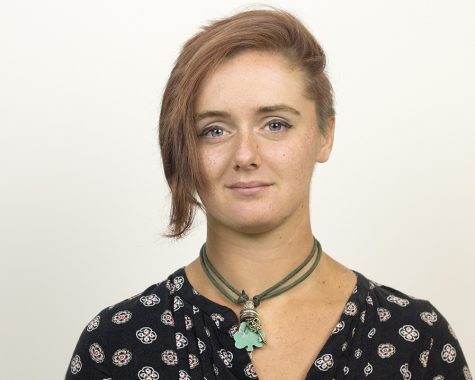Chronicling the day-to-day: a centering experience
November 6, 2017
On a social network I frequent, there is a trending #smallstories movement. Members from around the site, across nodes, linguistic groups and life experiences write out their day’s smallest, most vibrant experiences in 500 characters or fewer.
Writers add flowering language and introspective quips to their recounted experiences, then pass them around amongst each other, savoring the smallest parts of their personal histories.
The practice immediately appealed to me—I wrote about a local café, about the rainy days at Eastern, about strange barcode labels that could have been punk band names and about the moments of lost-in-thought silence in classrooms while everyone pondered together.
Other writers catalogued their early mornings, gardening mishaps, students, wives and pets with similar sentimental angles.
It seems like a strange, inconsequential hobby to get into, but I see the vestiges of some long-running social and literary trends in the #smallstories movement. To me, the little flash fiction we pass around seems very much like a modernist, digital-age twist on memoir movements; the first time I read the story of someone’s childhood in the #smallstories tag, I thought of a hand-typed local history, carefully preserved in a metal cover and placed by a natural freshwater spring.
While both were wildly different in execution, they were both painstaking and careful chronicles of the tiny specks of history that, while inconsequential in the long run, were important to the people they happened to. These little fragments of personal memories were preserved in the only way the authors knew how and were set on display so that everyone could know about the small things that change lives in small ways.
But all those small stories add up. Ethnographers and genealogists both understand the value of compiled fragments, collecting them up until something larger—maybe a pattern, or some novel-length story—becomes apparent.
They transform the little things into bigger ones, either knitting them together into local histories or reshaping them for creative works. Zora Neale Hurston and her works, now considered by many scholars to be the premier record of daily life for black-majority rural towns in the Deep South, are among my favorite examples of transformed small stories.
And small stories can be political, like Hurston’s sometimes were (she is often taught among other Harlem Renaissance writers for a reason). But they can also be in ways apolitical, deeply personal and related more to the tangled lives of average folks, less about politics than about the aftermaths. It all depends on the author, the situation, the story.
I am not sure if my no-destination rambling has inspired anyone, or if it has made small stories and the #smallstories movement even remotely interesting. If it has, though, I encourage you to take part.
You do not have to be a trained writer. You do not need to be well read. All you need is a pen or a pencil or a phone and a little scrap of sentiment.
Sit down and write. Think about the last time you were misty-eyed for no reason. Think about the way your grandmother arranged her kitchen, or about why the rain-soaked sidewalks sometimes call you for late night walks.
Think about the small ways that your life is yours alone, and about what beautiful or thoughtful or tragic things you have seen that nobody else can describe. Do not spend too much time composing. Let your hands do what they will.
You might be surprised to see how good it feels to make poetry out of your own life.
Shelby Niehaus is a senior English language arts major. She can be reached at 581-2812 or [email protected].















































